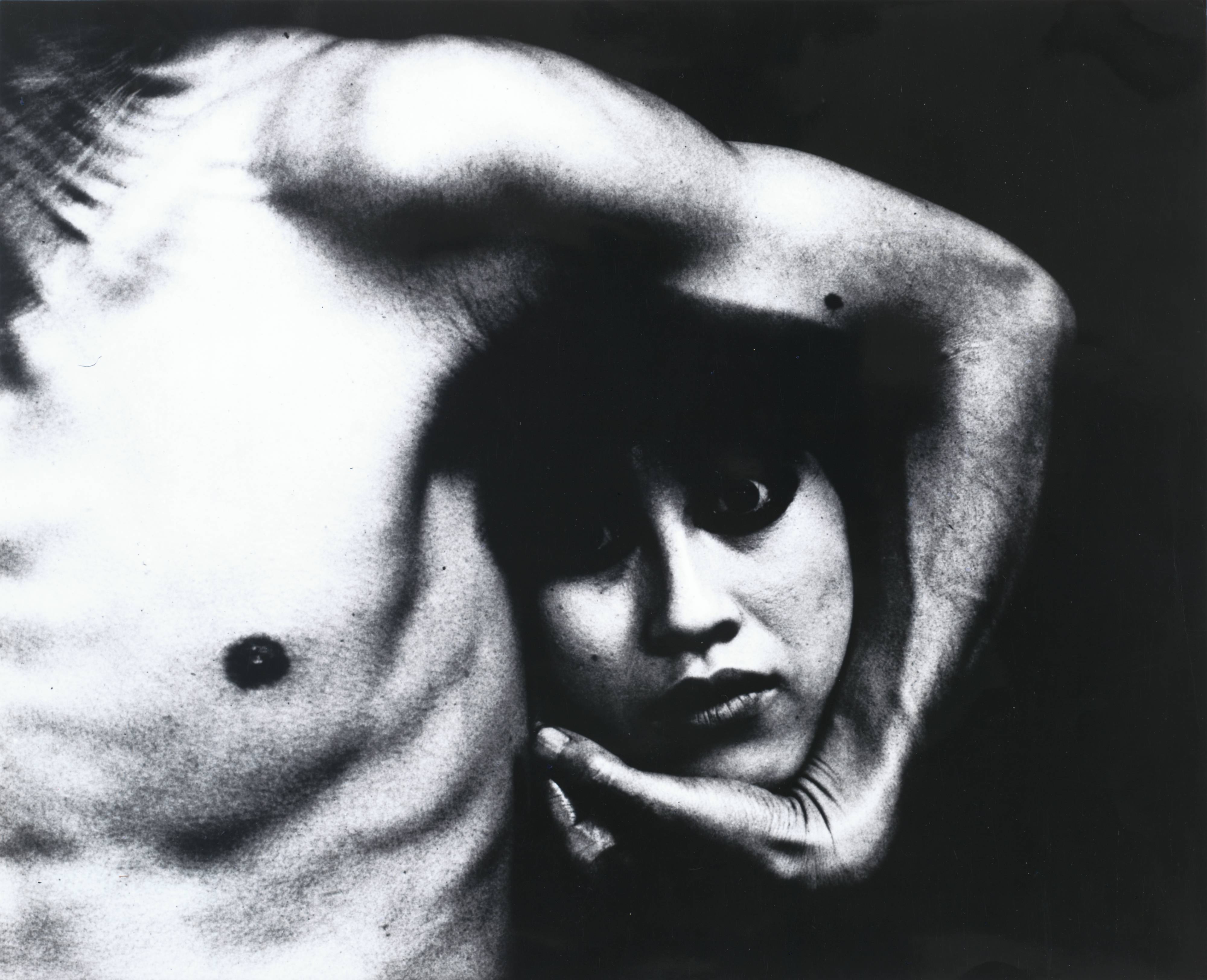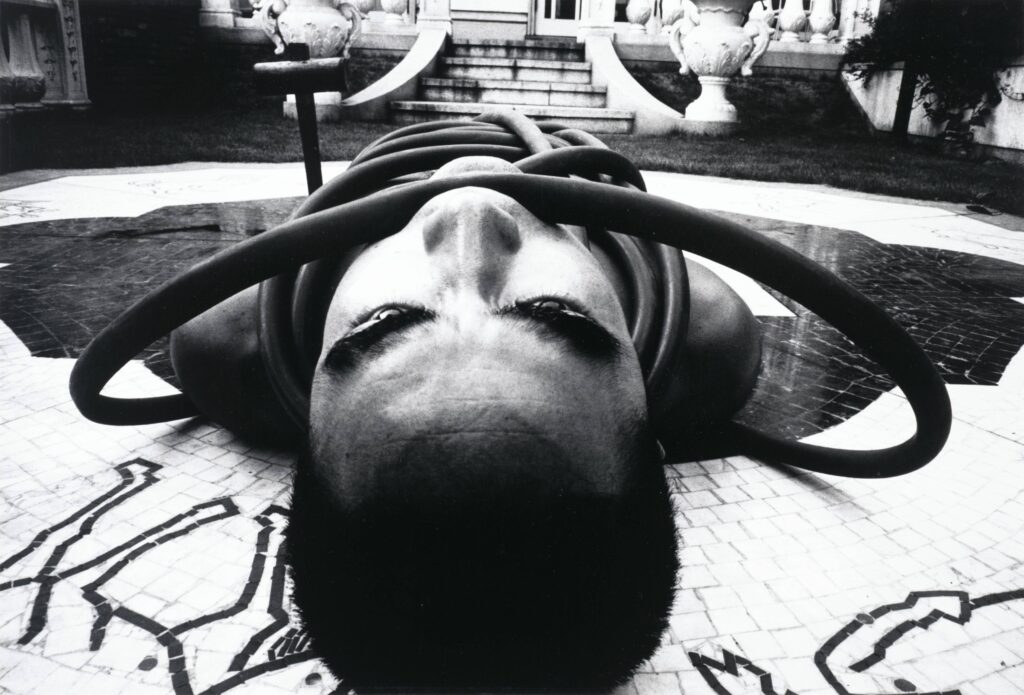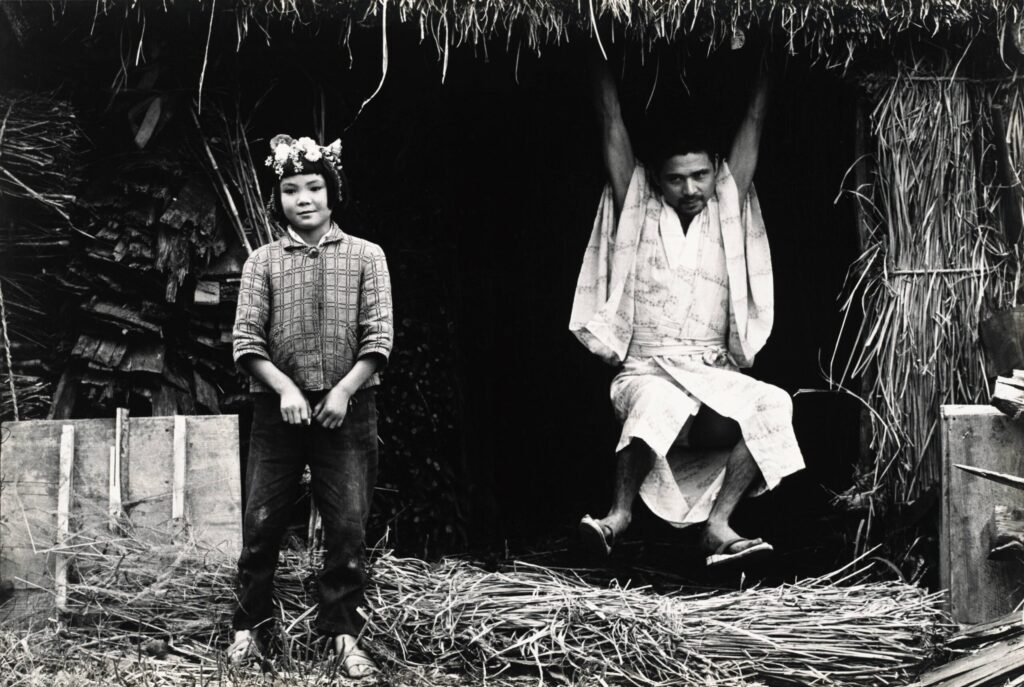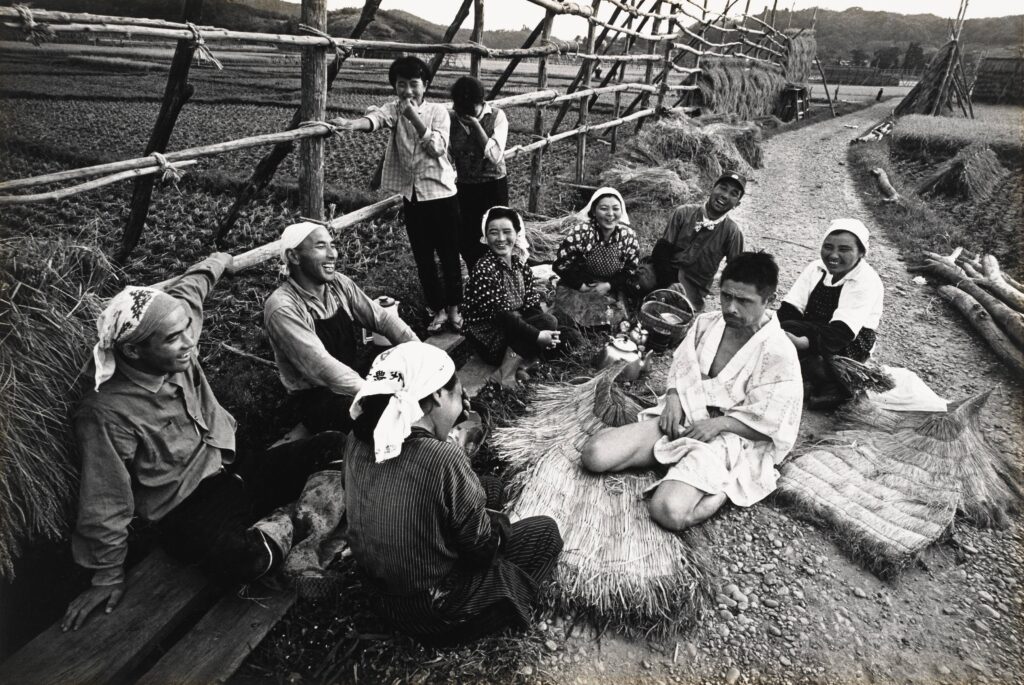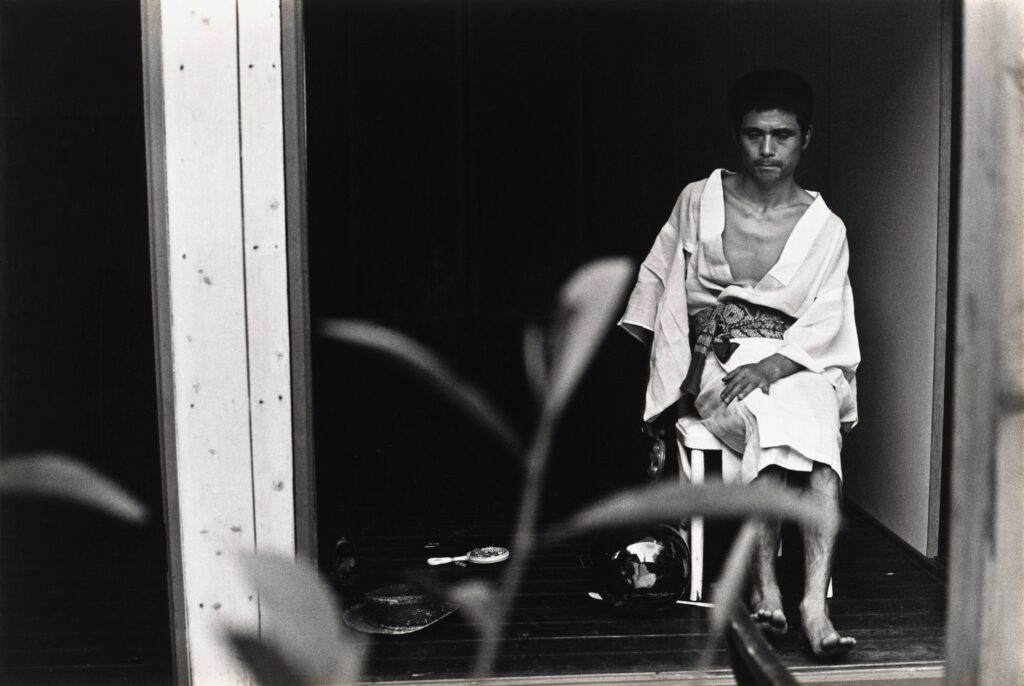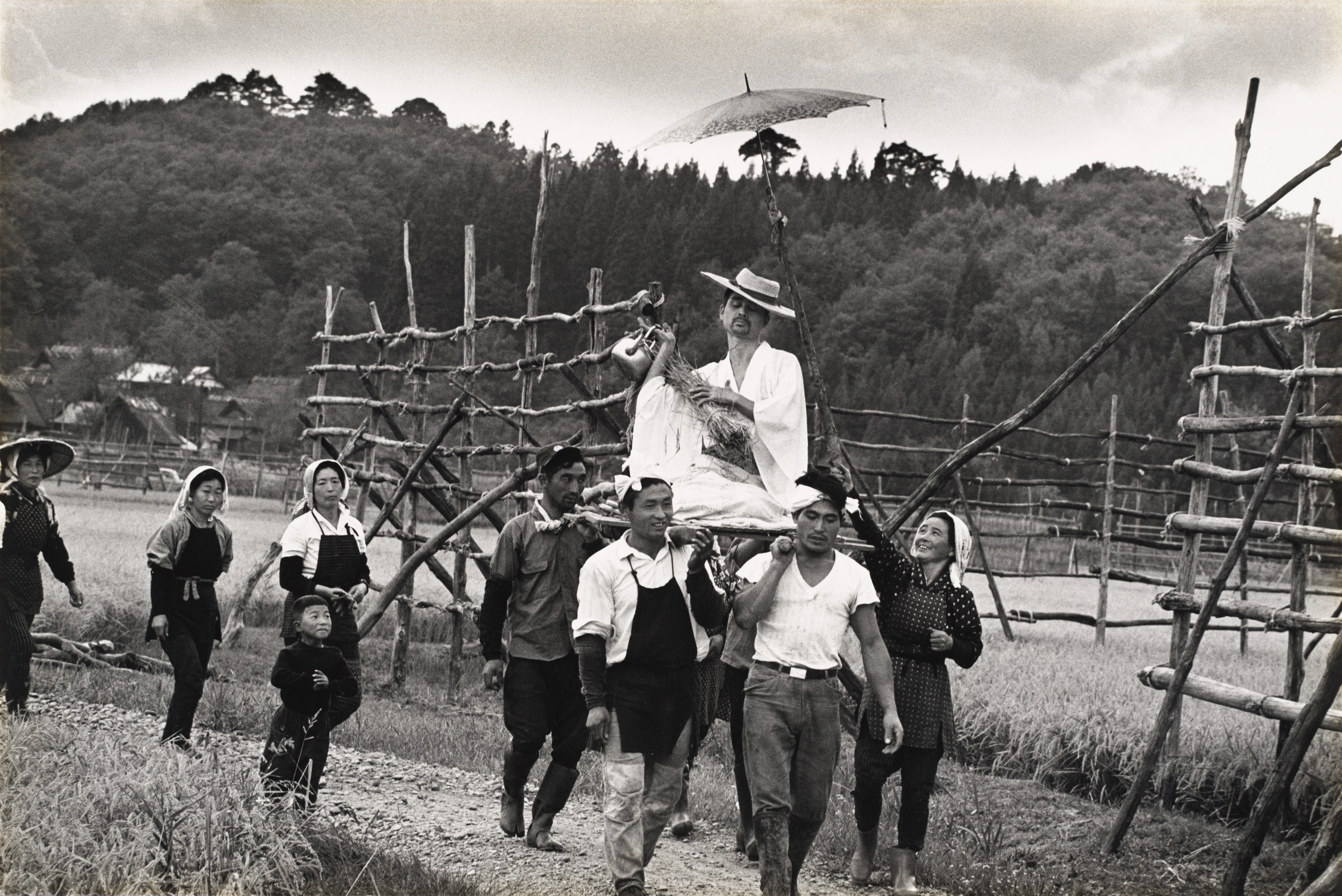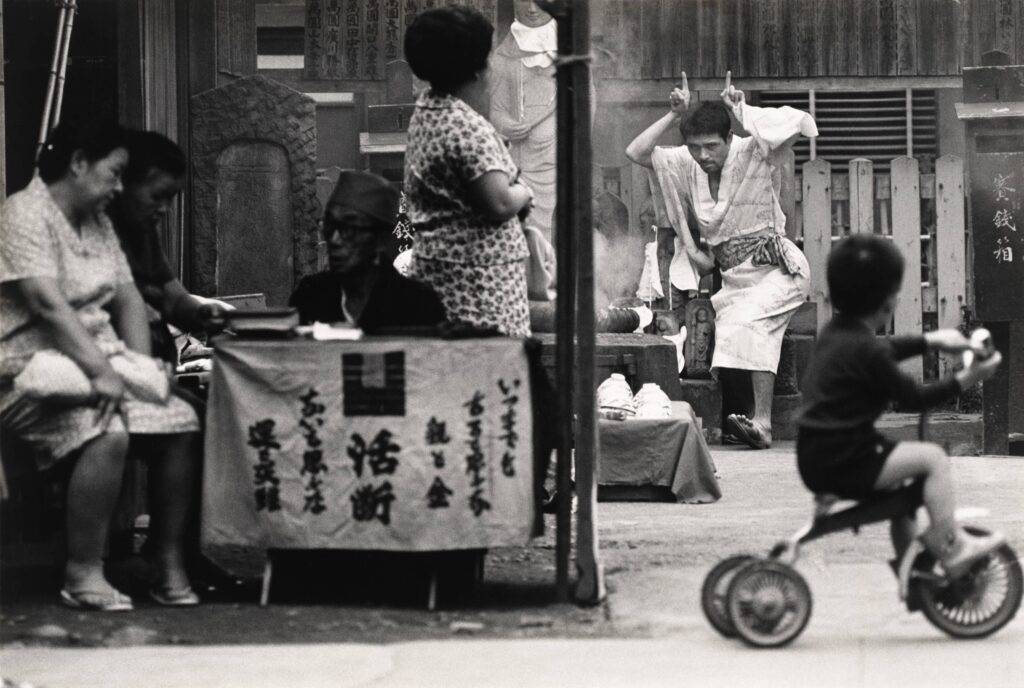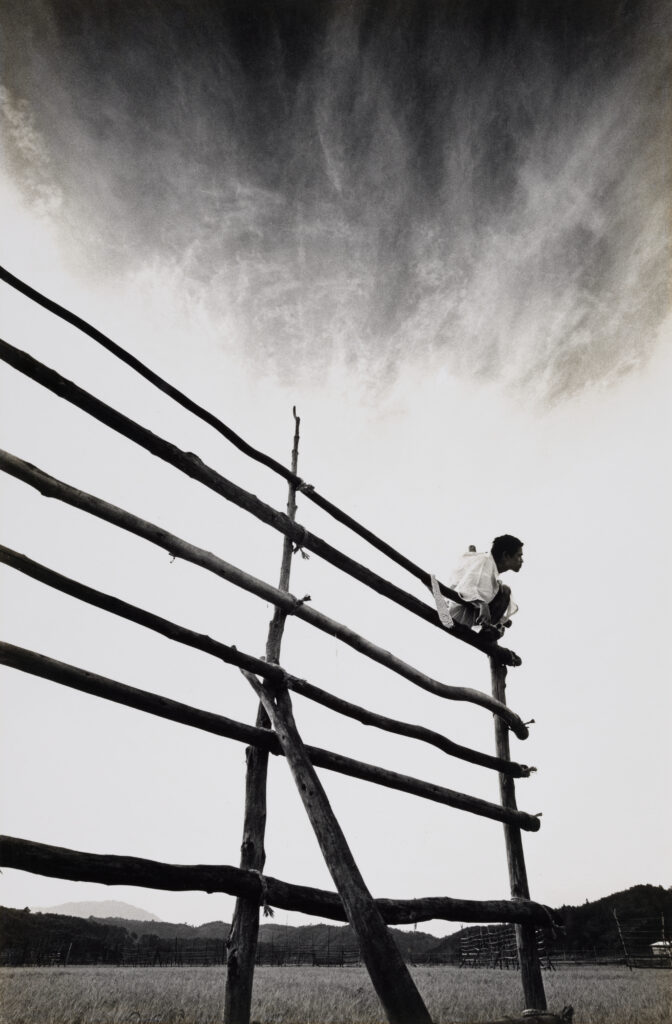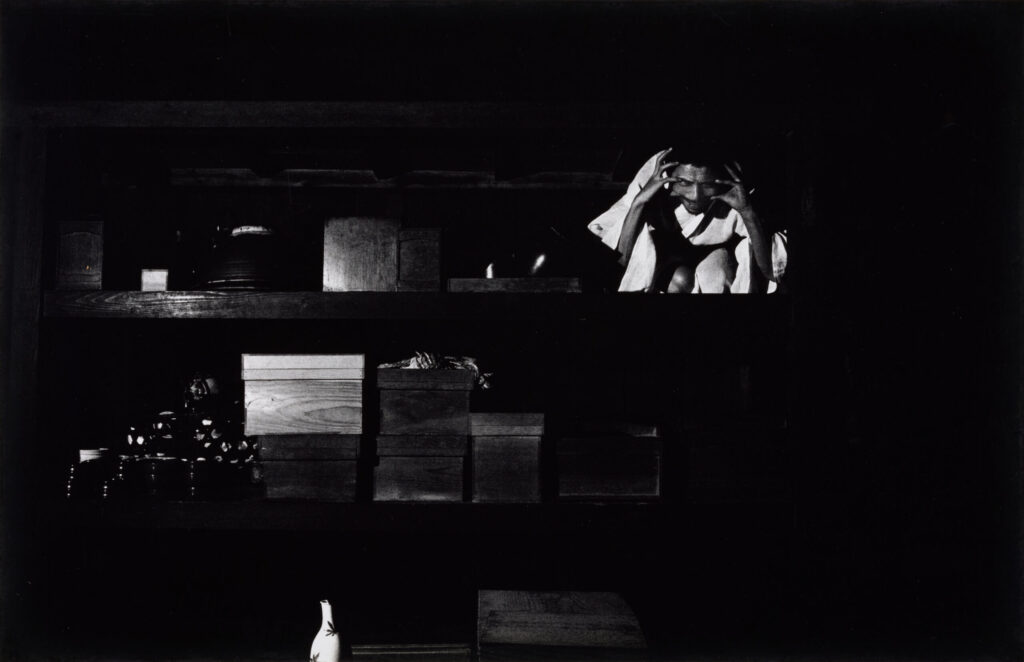Eikoh Hosoe: Does photography reflect truth?
Eikoh Hosoe
March 2016
Eikoh Hosoe: Photography looks very realistic, but is it real? According to the Japanese word [for] photography, shashin—shashin: it looks real, but it’s not real. Reflection of truth. [laughs]
Kamaitachi is [a] fictional animal. Kama means “sickle weasel.” It has some sort of a humorous, humorous touch. Humor, but not the safest humor, but the dangerous humor—something like that. The kamaitachi—itachi has a sense of attacking you.
Tatsumi Hijikata was one of my best friends. He created the word butoh. The word, it is a general word in Japanese. Butoh was a dance, but it was like that, without control or anything, [makes noises], like that. Ta-ta-ta. Step step step. Controlled movement. Not with the movement of ballet dance or American modern dance, but more Japanese. I said to him that I wanted to photograph him at his birthplace. I have a feeling that he himself is a kamaitachi. He has such a—such a mood, atmosphere, you see? But he is a genius man, genius dancer, but not like a ballet dancer. He doesn’t have any elegance at all. People were very much afraid, but he did something erotic, something humorous, you know? The villagers—they all laughed, and they started to relax. The village was a dramatic theater to me. And those people were the actors and the actresses, and [he] himself is a star among those ordinary actors and actresses.
It was the age of realism. Realism was all over Japan. Mine is Eikoh Hosoe realism. I am on the other side. You can express your images through [the] camera. The appearance looks realistic, but through a camera you have to make your own work. Photograph[y] is not just the product of physical movement but the psychological work because the camera is treated and operated by a human being.
